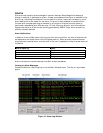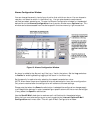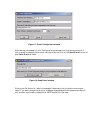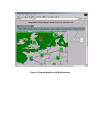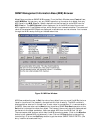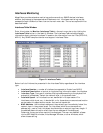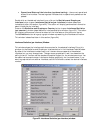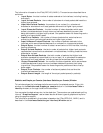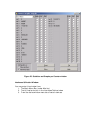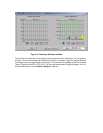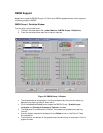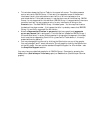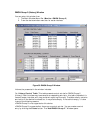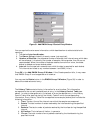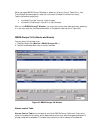The information is based on the ifTab (RFC1213, MIB-II). The counters are described there
as follows:
• Input Bytes - the total number of octets received on the interface, including framing
characters.
• Input Unicast Packets - the number of subnetwork-unicast packets delivered to a
higher-layer protocol.
• Input Non-Unicast Packets - the number of non-unicast (i.e., subnetwork-
broadcast or subnetwork-multicast) packets delivered to a higher-layer protocol.
• Input Discarded Packets - the total number of inbound packets which were
chosen to be discarded even though no errors had been detected to prevent their
being deliverable to a higher-layer protocol. One possible reason for discarding such a
packet is to free up buffer space.
• Input Error Packets - the number of inbound packets that contained errors
preventing them from being deliverable to a higher-layer protocol.
• Input Unknown Protocol Packets - the number of packets received via the
interface, which were discarded because of an unknown or unsupported protocol.
• Output Bytes - the total number of octets transmitted out of the interface, including
framing characters.
• Output Unicast Packets - the total number of packets that higher-level protocols
requested be transmitted to a subnetwork-unicast address, including those that were
discarded or not sent.
•
Output Non-Unicast Packets - the total number of packets that higher-level
protocols requested be transmitted to a non-unicast (i.e., a subnetwork-broadcast or
subnetwork-multicast) address, including those that were discarded or not sent.
• Output Discarded Packets - the number of outbound packets, which were chosen
to be discarded even though no errors had been detected to prevent their being
transmitted. One possible reason for discarding such a packet could be to free up
buffer space.
• Output Error Packets - the number of outbound packets that could not be
transmitted because of errors.
• Output Queue Length - the length of the output packet queue (in packets).
Statistics and Graphs per Counter (Interfaces Statistics per Counter) Window
This window shows the interfaces statistics counters for the selected counter. Enter this
window via the Statistics and Graphs per counter button in the Interfaces Table or
Identify windows, or through the Main Window Menu.
You may select the desired counter via the check box. The counters are updated each polling
interval. “Graphics Support” section describes the different types of graphs and explains
using the graphics support.
The information presented in the window is based on the ifTab (RFC1213 , MIB-II) and is
described in the Interfaces Statistics (per interface) Window section.



